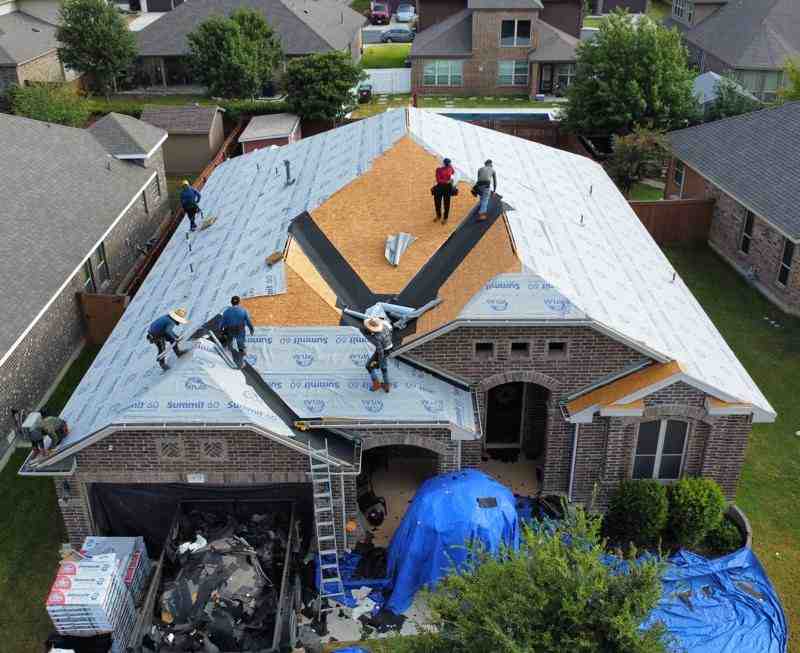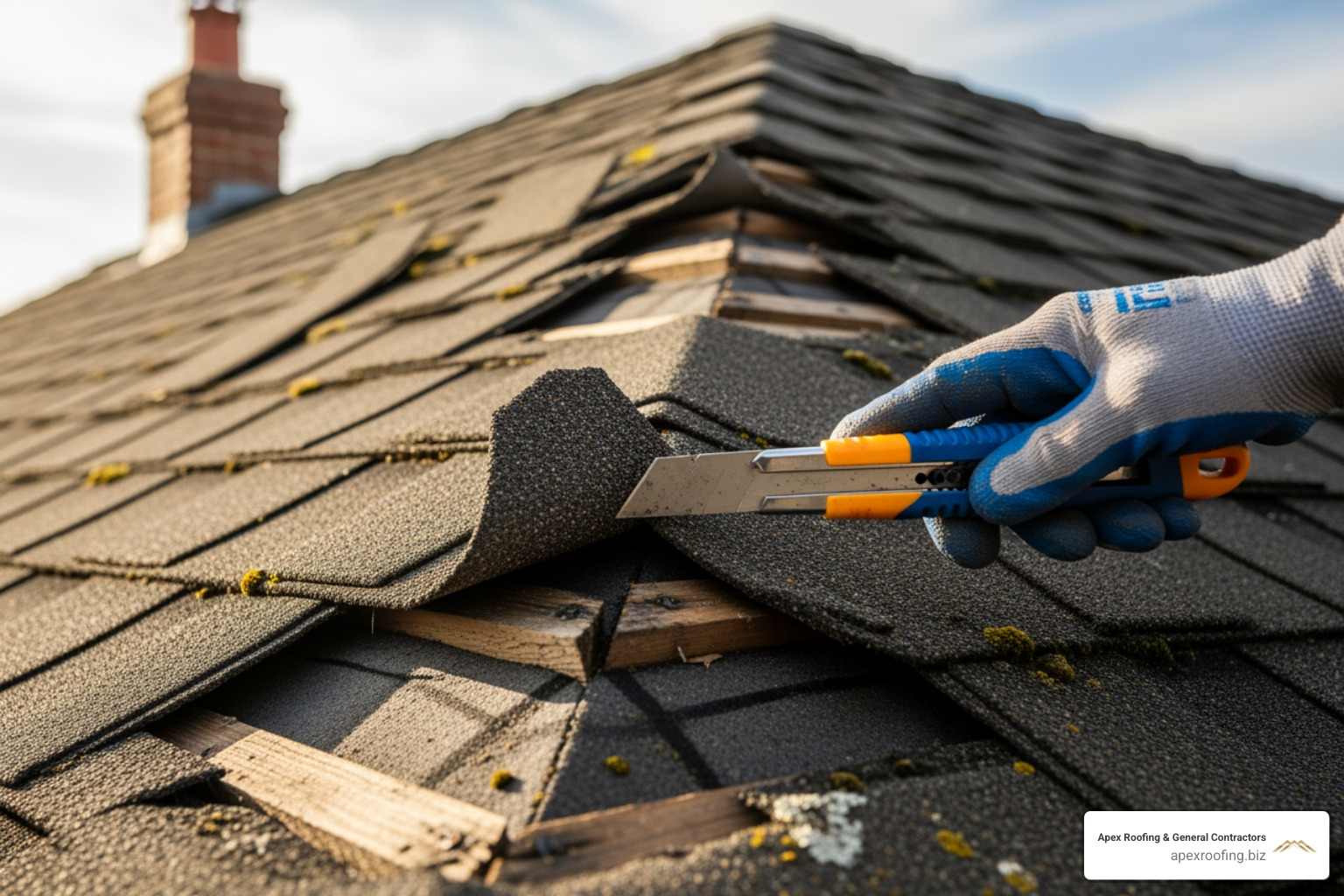Why Professional Roof Assessments Matter for Your Home’s Safety
Your home’s roof protects everything you value most. When problems arise or you need a routine assessment, finding qualified licensed roof inspectors is critical for your family’s safety and financial security. A professional inspection can prevent thousands of dollars in damage, as many premature roof failures result from a lack of periodic maintenance—issues that trained inspectors catch early. As a leading provider of certified roofing services in Texas, we understand that vetting these professionals protects your investment and ensures accurate assessments.
As Carlos Yzaguirre, President of Apex Roofing & General Contractors, I’ve worked with countless inspectors and know what separates qualified professionals from inadequate assessments. This guide will show you exactly how to find and vet the right inspector for your specific needs.
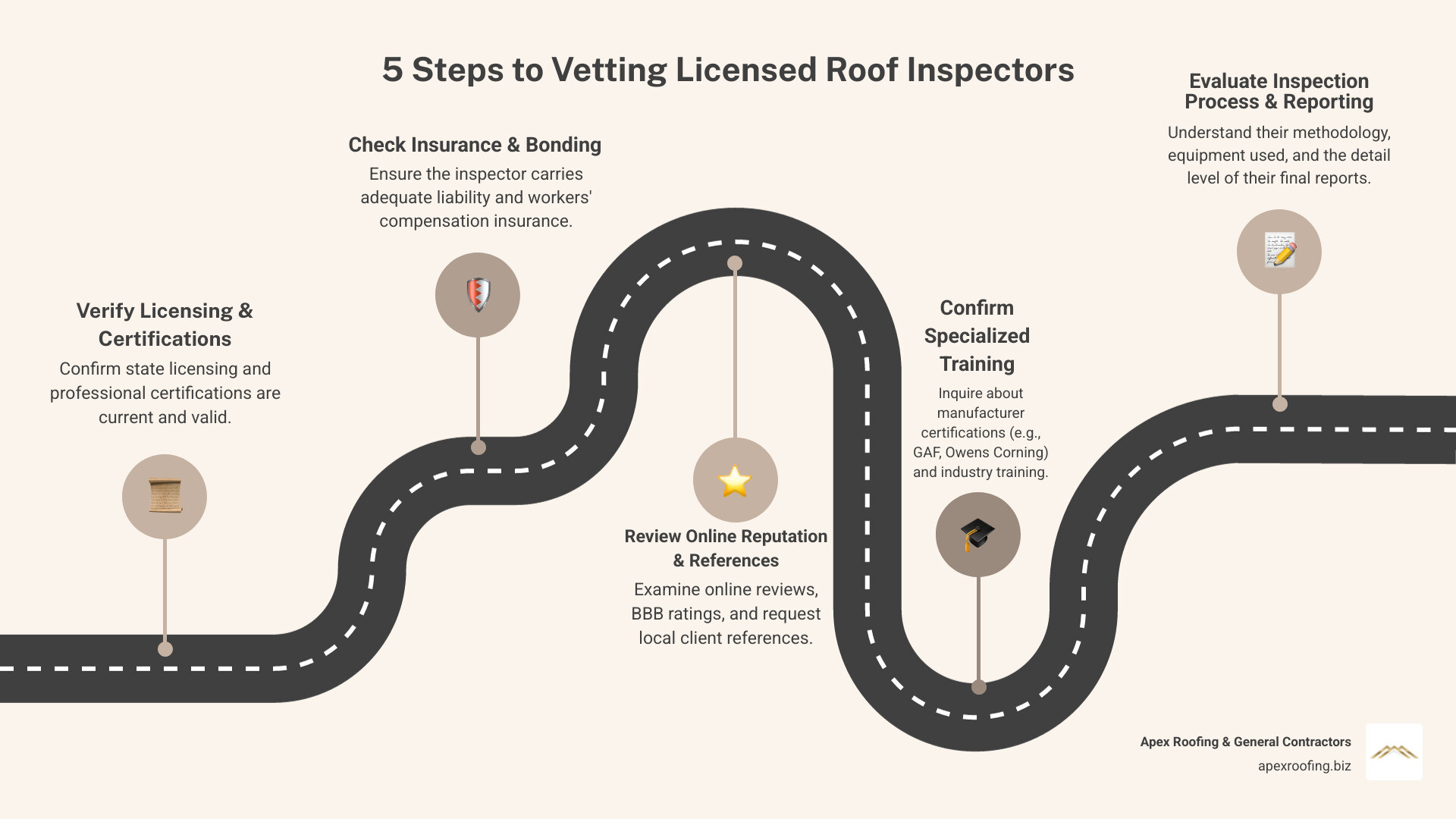
Understanding the Role and Value of a Roof Inspector
A licensed roof inspector plays a crucial role in home maintenance, spotting trouble before it becomes a costly nightmare. There’s a significant difference between a quick look and a proper inspection by a qualified professional.
The Critical Difference: Home Inspector vs. Roof Inspector
A general home inspector knows a little about everything, while a specialized roof inspector is a detective for your roof, knowing exactly where problems hide.
| Feature | Home Inspector | Specialized Roof Inspector |
|---|---|---|
| Primary Focus | General condition of entire home (systems, structure) | Detailed condition and integrity of the roofing system only |
| Scope of Inspection | Broad overview, often from the ground or ladder | In-depth, hands-on examination of all roof components, often on the roof surface |
| Depth of Analysis | Looks for obvious defects or safety hazards | Pinpoints subtle issues, underlying causes, and potential future problems |
| Equipment Used | General tools, flashlight, moisture meter | Specialized tools, drones, infrared cameras, core samples, advanced moisture detection |
| Reporting Detail | Section of a larger home report, general findings | Dedicated, comprehensive report with extensive photos, technical analysis, specific recommendations |
A home inspector might see missing shingles, but a roof specialist understands how materials age, where leaks start, and what minor issues signal major trouble. They use advanced tools like thermal imaging cameras and drones for a truly in-depth analysis.
Key Services Provided by a Roof Inspector
Professional roof inspectors offer several key services:
- Maintenance inspections are like regular checkups, catching small problems before they become emergencies.
- Storm damage assessments are critical after severe weather. Inspectors document damage with the precision insurance companies require.
- Real estate transaction reports provide peace of mind for buyers and sellers, preventing last-minute surprises.
- Insurance claim documentation includes the detailed evidence and analysis that adjusters trust, ensuring fair compensation.
- Verification inspections for new installations confirm the job was done right, preventing warranty issues and premature failure.
Learn more about our comprehensive approach to residential roof inspections and how we protect Texas homeowners.
Top Benefits of Hiring a Professional
The value of hiring a professional extends beyond the inspection itself:
- Early problem detection saves you thousands by catching small issues before they become major leaks.
- Long-term cost savings come from preventive maintenance, which costs a fraction of emergency repairs.
- Safety is paramount. Professionals have the training and equipment to work safely at heights.
- Expert documentation provides credible, objective evidence for insurance claims.
- Unbiased assessments from a dedicated inspector give you an honest evaluation of your roof’s condition.
- Prolonging your roof’s lifespan through regular professional care maximizes your investment.
The peace of mind from a qualified expert’s evaluation is priceless.
What to Look for When Hiring Licensed Roof Inspectors
Finding the right licensed roof inspectors means knowing what questions to ask and what credentials to look for. A qualified professional can save you thousands by catching problems early.
Essential Qualifications and Certifications
The term “licensed” can vary by location. In Texas, where state-wide licensing for roof inspectors isn’t mandated, it’s even more important to verify qualifications.
- State and Local Requirements: Always check your local jurisdiction’s requirements for licensing and ensure they are active.
- Professional Certifications: Since licensing isn’t universal, certifications from respected organizations like the International Association of Certified Home Inspectors (InterNACHI®) or the NRCIA (National Roof Certification and Inspection Association) are crucial. These groups require members to follow a strict code of ethics and pursue continuing education.
- Manufacturer Certifications: Training from manufacturers like GAF or Owens Corning shows an inspector has specialized knowledge of specific products.
- Insurance Coverage: This is non-negotiable. Your inspector must have both liability and workers’ compensation insurance. Ask for proof.
- Continuing Education: The roofing industry is always evolving. Professionals who pursue ongoing training stay current on the latest materials, techniques, and codes.
For more insights, check out our guide on certified roofing contractors.
How to Vet an Inspector’s Reputation and Experience
Once you’ve confirmed their credentials, investigate their reputation.
- Online Reviews: Read comments on Google and the Better Business Bureau. Note how companies respond to negative feedback.
- Local References: A confident inspector will provide contact information for recent clients. Ask them about their experience.
- Verify Independently: Use online directories from professional organizations to confirm membership and certifications.
- Experience: Local experience is a plus. An inspector familiar with regional challenges like Texas heat and storms will provide a more relevant assessment.
- Sample Reports: Ask to see a sample report to gauge the clarity and thoroughness of their documentation.
Trust your gut. A professional will be patient and transparent. If someone seems rushed or evasive, keep looking.
The Roof Inspection Process: From First Call to Final Report
When you call a professional licensed roof inspector, you’re investing in a systematic evaluation of your roof. This complete physical exam can reveal hidden problems and provide a clear roadmap for protecting your home.
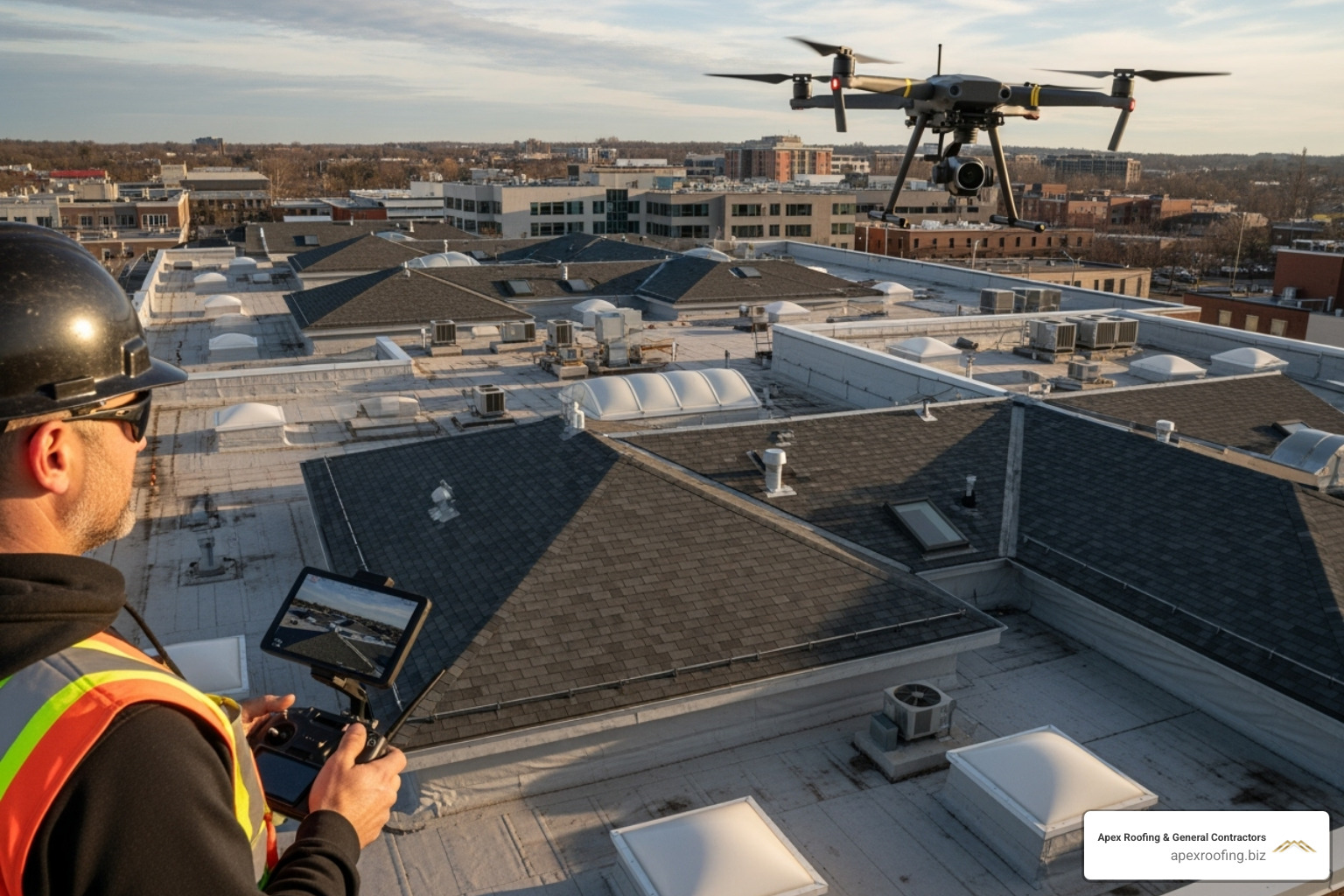
What’s Included in a Comprehensive Roof Examination?
Inspectors follow a multi-zone approach, evaluating structural integrity, material condition, interior signs, and workmanship.
- Exterior Inspection: They check roofing materials for damage (e.g., cracked shingles, granule loss, corrosion), paying special attention to flashing around chimneys, vents, and skylights, as it’s a common leak source.
- Drainage System: Gutters and downspouts are checked for clogs and proper slope to ensure water flows away from your foundation.
- Structural Inspection: The inspector looks for sagging in the roofline or decking, which can indicate water damage or support issues. Chimneys are checked for cracks or eroding mortar.
- Attic Inspection: Inside the attic, they look for water stains, mold, or damp insulation, and evaluate the ventilation system.
- Workmanship Analysis: The quality of previous installations or repairs is examined for issues like poor nailing patterns or inadequate sealing.
You’ll receive a detailed report with photos, damage descriptions, and repair recommendations.
The Value of Licensed Roof Inspectors for Insurance and Sales
A professional report from licensed roof inspectors carries significant weight.
- Storm Damage Documentation: Inspectors know how to differentiate storm damage from normal wear, providing the objective proof insurance companies require. Their reports are seen as impartial and credible.
- Real Estate Transactions: For sellers, a pre-listing inspection can prevent surprises that derail a sale. For buyers, a report is a powerful negotiating tool, helping you avoid inheriting expensive problems. Lenders may also require roof certifications for older homes.
For more information, check out our guide on roof certification inspection services.
Understanding the Cost of a Professional Inspection
The cost of a professional roof inspection varies but is a worthwhile investment.
- Average Cost: In San Antonio, inspections typically range from $173 to $270.
- Price Factors: The final price is influenced by the roof’s size, pitch, complexity, and material.
- What’s Included: The fee covers the on-site exam, photo documentation, and a detailed written report with recommendations.
- Value Proposition: Beware of “free” estimates that are often sales pitches. A true inspection provides an unbiased assessment. Spending a few hundred dollars on an inspection can identify issues before they become thousand-dollar problems, making it an essential part of home ownership.
When and Why to Schedule a Roof Inspection
Timing is everything with roof inspections. Calling licensed roof inspectors at the right moment can be the difference between a simple repair and a full replacement. Your roof doesn’t always shout when it needs help; learning to recognize the signs is key.
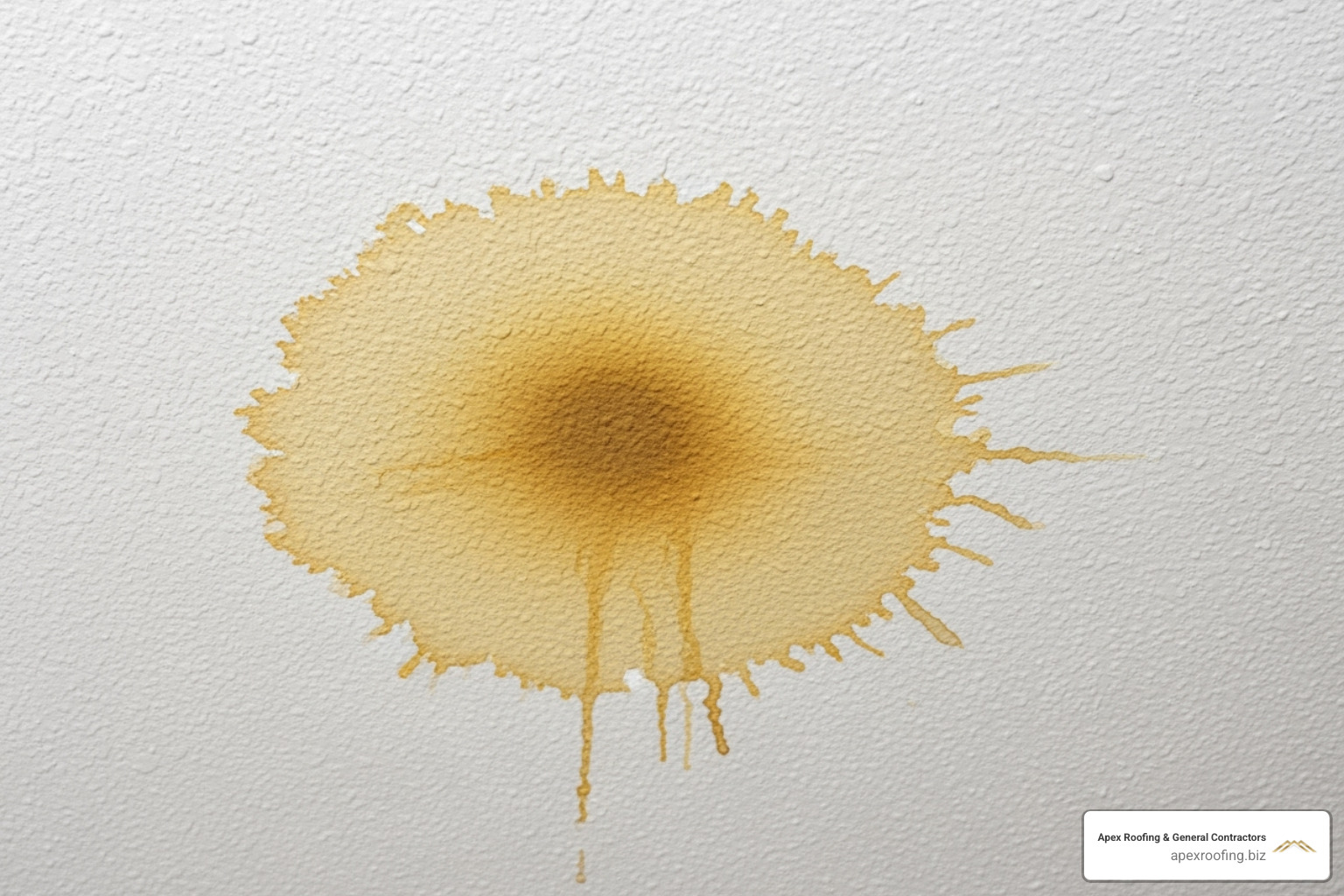
Telltale Signs Your Roof Needs an Inspection
- Damaged Shingles: Missing, cracked, or curling shingles leave your roof’s underlayment exposed.
- Granules in Gutters: Piles of shingle granules mean your roof is losing its UV protection and aging faster.
- Interior Water Stains: Brown or yellow stains on ceilings or walls are a clear sign that water has already breached your defenses.
- Sagging Roof Deck: Dips in the roofline or soft spots in the attic signal serious structural issues.
- Moss or Algae Growth: While sometimes cosmetic, extensive growth can trap moisture and accelerate deterioration.
- Attic Leaks After Rain: A quick check in your attic after a storm can reveal water intrusion before it reaches your living space.
- Increased Energy Bills: A compromised roof can affect insulation, forcing your HVAC system to work harder.
Recommended Inspection Frequency
Knowing when to schedule an inspection is just as important as knowing the signs.
- Annually: A yearly check-up, ideally in the spring or fall, helps catch minor issues early.
- After Major Weather Events: It’s essential to get an inspection after hail, high winds, or heavy rain, as damage can be invisible from the ground.
- Before Buying or Selling a Home: This protects both buyers from hidden problems and sellers from last-minute deal complications.
- When You Notice Warning Signs: Don’t wait for your annual check-up if you see any of the signs listed above.
- For Older Roofs: Roofs over 10-15 years old are more prone to issues and need more frequent check-ups.
Frequently Asked Questions about Licensed Roof Inspectors
We know hiring licensed roof inspectors can bring up questions. Here are straightforward answers to common concerns.
Can I perform my own roof inspection?
While a visual scan from the ground is a good habit, it can’t replace a professional assessment. The primary reasons are safety and expertise. Roofs are dangerous, and professionals have the training and equipment to work safely. They are also trained to spot subtle signs of damage—like early flashing failure or specific granule loss patterns—that an untrained eye would miss. They use specialized tools like infrared cameras to detect hidden moisture, ensuring a truly thorough evaluation.
What happens if the inspector finds damage?
Finding damage means you’ve caught a problem before it worsened. The inspector will provide a detailed report with photos and clear descriptions of each issue. They will walk you through the findings, explain which problems are urgent, and provide clear recommendations with estimated costs. This transparent process allows you to budget and make informed decisions. If an insurance claim is needed, this documentation is invaluable.
How long does a roof inspection typically take?
A standard residential inspection usually takes 45 minutes to a few hours on-site. The time depends on the roof’s size, complexity, and condition. Afterward, the inspector will compile the findings into a comprehensive report, which is typically delivered within 24 to 48 hours. The small time investment provides significant peace of mind and potential cost savings.
Protect Your Home with a Professional Inspection
Hiring licensed roof inspectors is one of the smartest investments you can make in your home’s safety and value. By vetting professionals for proper licensing, certifications, and a solid reputation, you get an accurate, unbiased assessment of your roof’s condition—not a sales pitch.
This professional insight empowers you to tackle small problems before they become budget-busting disasters. You can address issues on your own timeline and have the expert documentation needed for insurance claims or real estate transactions. The peace of mind that comes from knowing a trained expert has thoroughly examined your roof is invaluable.
For homeowners throughout San Antonio, Helotes, Leon Valley, Alamo Heights, and the surrounding Bexar County area, our team at Apex Roofing & General Contractors provides the expertise you deserve. We understand Texas weather and what it takes to keep your roof performing at its best.
Don’t wait for the next storm to find a problem. Call us today at (726) 727-7663 for a free inspection and to receive your free estimates.


